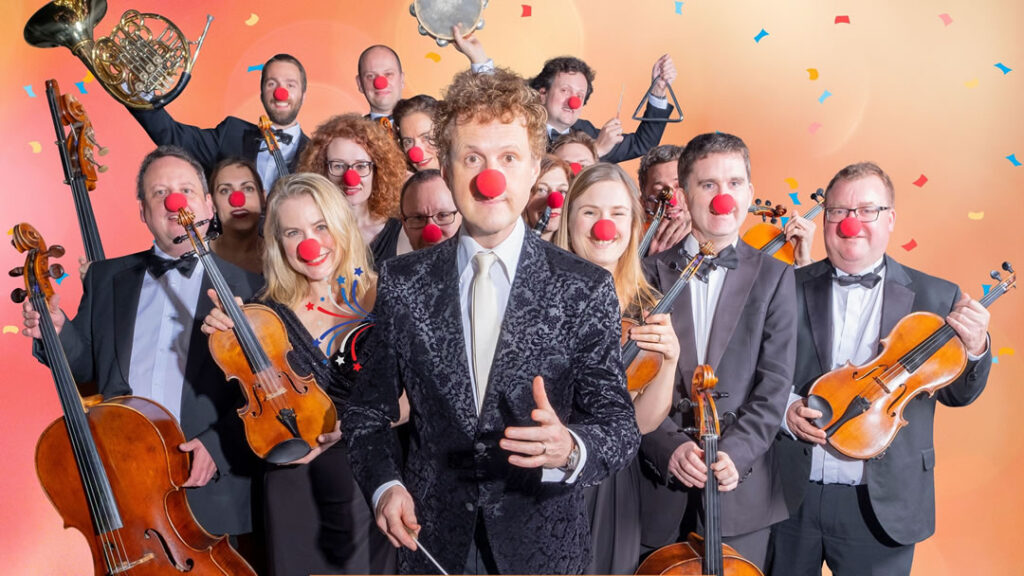In case you missed it, one of the hottest tickets at this year’s BBC Promenade concerts was the Aurora Orchestra performing Beethoven’s Choral Symphony from memory. Yes, you read that right, folks – a whole symphony orchestra, 128-piece choir, four soloist and conductor doing the whole of Beethoven 9 without the benefit of a single note of printed music. If, like me, you have trouble even remembering where you left your mobile phone, this is borderline fantasy. There are plenty of amateur musicians who have been playing the same piece for years but, take the dots away, would not even know where to start, let alone PLAY THE WHOLE OF BEETHOVEN’S NINTH SYMPHONY FROM MEMORY. While this feat is totally amazing, to me it brings one thing truly into focus – the importance of the conductor.
Let’s just take a minute to remind ourselves of exactly what it takes for an orchestra to play without music: memorising a symphony is not just about remembering the tune. As the melody plays, there are all sorts of inner musical cogs whirring away – some of which you are aware of, many not. While the first violins are playing that really good bit you wait all symphony for, right next door sit the seconds are scrubbing away at a largely unrecognisable gobbledygook version, which sounds like it has gone through an extended game of Chinese whispers.
Then there are the bowings. Ever noticed how the string sections of an orchestra are all moving their bows up and down at the same time? How the bows move is crucial to the sound they make but was not decided by Beethoven. Instead, it is worked out every time, usually by the leader of each string section, and pencilled into their parts by the players. So, in addition to the dots, they have to memorise their bowings too. As a born-again viola player, trust me, just writing them into your part is a bore, memorising them is a task that would make a rainy weekend with no WIFI seem fascinating.
Unless you are lucky enough to have a photographic memory, memorisation on this scale can only be achieved by endless repetition. Dogged practice at home. Then, probably, dogged practice against a recording to check that you are getting it right. In the process, the players will inevitably not only memorise the music but also a performance. When they finally come together for rehearsal, there will exist an orchestra-full of differently memorised performances. To overcome this, they will need a conductor of truly messianic vision to lead them to a unified vision of the piece. All visions, messianic or otherwise, are going to require annotations as to how they differ from the learned performances. In normal rehearsals, the players pencil such annotations in their parts – the very parts that, oh hang on, they haven’t got. So, these also have to be memorised.
You would expect all this titanic effort to produce something incredible, and from a theatrical point of view the Aurora’s memorised performances are just that: with no music stands in the way, the players can move about; group and regroup themselves corresponding to the music. They feel liberated, ready to do something fantastic – an energy which transmits itself directly to their audience. And how much those spectators concentrate if they can see that the orchestra have engaged with their text to the extent that they can actually reproduce it from memory?
Unfortunately, the visuals is where it stops. What!? Why doesn’t all this preparation also transmit to the final musical performance? Well, remember that messianic conductor? That is something the Aurora Orchestra haven’t got. They have only got a good conductor and it’s not enough. Close your eyes and it wouldn’t make any difference if the orchestra were sightreading. Open them again and you have the feeling you are watching a circus trick: skilful, brilliant but lacking any really interesting musical direction.
So, like it or not, the conductor, any conductor is the crucial piece of the jigsaw. The Aurora have been at this for a while now: memorised Berlioz Symphonie fantastique, Stravinsky’s Rite of Spring, Beethoven Choral Symphony – it’s hard to know what they can do to top that (though I am sure their marketing department will come up with something). But I am still waiting for them to take this idea and really make something of it. Sorry if this sounds brutal, it is certainly in King’s New Clothes territory, but I might as well be honest. All this pontification boils down to: “OK you have given me the theatre, now give me back the music”. And, while you’re at it, my mobile phone please – it’s around here somewhere.


